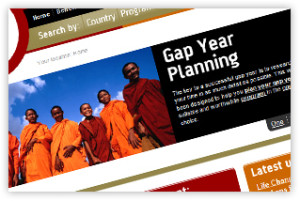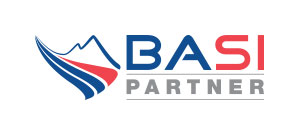How to plan a Gap Year
Planning a Gap Year can sometimes feel a little overwhelming. With a very large and exciting world out there waiting to be explored, it is important that you spend some time planning your year away from study and ‘real life’ so that you can make the most of it. Having provided unforgettable Gap Year experiences for more than a thousand Gap Year’ers over the past 13 years we like to think we are well qualified at helping you plan this ‘once in a lifetime experience.’ Below are our top tips:
Budget
For most people who are planning a Gap Year, the first thought that crosses their minds (and their parents’ minds!) is, “How much is this going to cost?” It is fair to say that taking a Gap Year isn’t cheap, but then again it doesn’t have to be really expensive. Volunteer placements in developing countries can be an affordable way of taking a Gap Year as can learning a skill, gaining a qualification, and doing paid work for some of your Gap Year. Whatever kind of Gap Year you’re planning you should budget on it costing between £5,000 and £15,000, depending on what you’re doing and where you’re travelling.
Before you book anything it is important to put together a spreadsheet of your expenses. Include literally everything, from your travel, accommodation, food, course fees, alcohol, insurance, daily living expenses, currency exchange fees, books, leisure activities, travel equipment, visa and immigration fees, etc etc. Always be realistic with your expenses and at the end of compiling your spreadsheet you should add an additional 20% to the cost.
Time & Place
Next up; it’s important to plan when and where you want to take your gap year. If you want to travel and work abroad then you may have to apply for a working holiday visa. In some countries (Canada and the US are prime examples) these visas are severely limited and sometimes issued periodically throughout the year. If you want to guarantee a working tourist visa then you will have to apply in plenty of time and you may have to show that you hold qualifications and have relevant work experience to meet the issuing criteria…….. being a qualified ski or snowboard instructor is a good way of securing a visa.
If you want to work or work as an unpaid volunteer during your Gap Year then you may want to start applying for placements before the start of your year off. The best idea is to attend a Gap Year fair at your school, or at a neighboring school, and talk to some Gap Year providers. You may not use their service in the end but you will be able to ask some valuable questions and get some helpful answers.
It is also important that you consider the weather and season when travelling; you don’t want to be travelling through Indonesia during Monsoon season and you certainly don’t want to be skiing when there’s no snow. Remember that there are two hemispheres and that you can ski or snowboard almost 10 months of the year if needs be.
Research on the Internet
There are literally thousands of Gap Year providers out there and in such a crowded marketplace it can be difficult to sort the wheat from the chaff. Obviously most people will base their research on price and destination but always check the following:
1) Is the company/organisation that you’re looking at well-established and financially sound?
2) Is the company/organisation accredited by a regulatory body or association? (Peak Leaders is accredited by the Year Out Group)
3) What are you getting for your money? Some companies may appear cheaper on paper but the value for money is quite often far worse.
4) Read as many online reviews of this company/experience as possible…….if you look hard-enough there are bound to be some reviews.
5) Read their blog, watch their videos on Youtube and Vimeo, ‘like’ their Facebook page, and follow them on Instagram. This will give you a much clearer picture of what they actually do. If they don’t use social media or blogging it means they’ve never run the experience you’re about to embark on……or they are understaffed!
Ask your friends and family
Peak Leaders were recommended to many of the trainees that we’ve taken on our ski, snowboard and mountain bike courses, mostly by family or friends. This is a fantastic way of guaranteeing that you will be in safe hands and that you’ll have a good time.
By asking your friends and family you will not only get a better idea of the experience that you are planning but also a good picture of how the company is run. Customer service and course organisation are factors that you’d otherwise be unaware of before parting with your hard-earned cash.
Look on the websites of Gap Year associations like the ‘Year Out Group’.
As previously stated it is important to do as much research as possible on the Internet before enrolling in a course. With so many Gap Year companies out there, it is often difficult to make a shortlist; the quickest option is to contact the first five companies that appear on your Google search, but this is definitely not the best option.
Associations like the ‘Year Out Group’ provide total references and resources for people looking to take a Gap Year. The organisations/companies that they promote are heavily screened and have to meet certain criteria. This gives people planning a Gap Year the support and reassurance they need to make a decision.
For more information on the ‘Year Out Group’ click HERE.
Speak to somebody on the phone
When booking a holiday on the Internet, in this day and age you don’t even have to pick up the phone! Unfortunately, booking a holiday and booking a Gap Year experience are two completely different things and it’s always worth picking-up the phone and calling a number of companies before you make your booking. This will give you a strong understanding of the following:
1) The quality of customer service; whether the staff at a particular company know what they’re talking about, whether they are prepared to go above and beyond for your business, and whether they understand your needs.
2) It will let you know whether the people working at the company are passionate about the courses and experiences they’re selling.
3) Whether the people working for the company have a similar ethos to you.
4) Whether there is a course, experience or destination that you haven’t considered which is more suited to your needs.
5) Reassurance that you are dealing with a team of like-minded individuals not a guy running his business from a laptop who has no interest in your wellbeing.
WE LOVE IT WHEN WE GET CALLS FROM PEOPLE INTERESTED IN OUR COURSES.

















You must be logged in to post a comment.